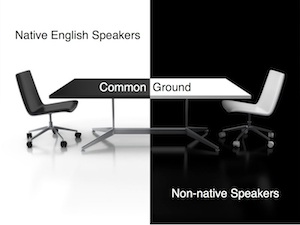Why Career Goals Don’t Matter In Japan: Understanding the Japanese Salaryman’s Mindset
 I started my career at a large commercial bank in Japan. Shortly after I received the offer, the HR manager asked me which department I wished to work in. Naturally, I told him my preference: the venture capital division.
I started my career at a large commercial bank in Japan. Shortly after I received the offer, the HR manager asked me which department I wished to work in. Naturally, I told him my preference: the venture capital division.
WRONG ANSWER!
I was sent to a different department, without receiving an explanation for that decision. I later discovered that the correct answer should have been a similar response to this:

 Communication Stlye
Communication Stlye I am constantly surprised by the number of people preferring to interact via e-mails and phone calls over video conferencing, especially when communicating and collaborating with their global colleagues.
I am constantly surprised by the number of people preferring to interact via e-mails and phone calls over video conferencing, especially when communicating and collaborating with their global colleagues. Last December, I brought an American friend of mine to a hot spring. We decided to go for a luxury experience and went to a high end ryokan, a Japanese-style inn.
Last December, I brought an American friend of mine to a hot spring. We decided to go for a luxury experience and went to a high end ryokan, a Japanese-style inn. You may not believe it, but there is a word for "google it, you dumb ass" in Japanese: it’s pronounced "gu-gu-re-ka-su (#ggrks)."
You may not believe it, but there is a word for "google it, you dumb ass" in Japanese: it’s pronounced "gu-gu-re-ka-su (#ggrks)." “I don’t know why my boss in Dublin (Ireland) always starts our video conference by telling me what she did during the weekend. Why can’t we just dive into the meeting without wasting time?”
“I don’t know why my boss in Dublin (Ireland) always starts our video conference by telling me what she did during the weekend. Why can’t we just dive into the meeting without wasting time?” "So what is the secret for hiring good freelancers?"
"So what is the secret for hiring good freelancers?" Some of you may have heard the old Japanese proverb “The nail which sticks up is hammered down.” Guides to doing business in Japan often illustrate this proverb using dress code (e.g., don’t wear flashy clothes to business meetings), but its meaning is much deeper than this.
Some of you may have heard the old Japanese proverb “The nail which sticks up is hammered down.” Guides to doing business in Japan often illustrate this proverb using dress code (e.g., don’t wear flashy clothes to business meetings), but its meaning is much deeper than this.
 I often get surprised reactions when I tell my non-Japanese friends that we, Japanese, do not stop you for clarification even if we get confused.
I often get surprised reactions when I tell my non-Japanese friends that we, Japanese, do not stop you for clarification even if we get confused. "Why are Japanese businesspeople so resistant to change?"
"Why are Japanese businesspeople so resistant to change?"